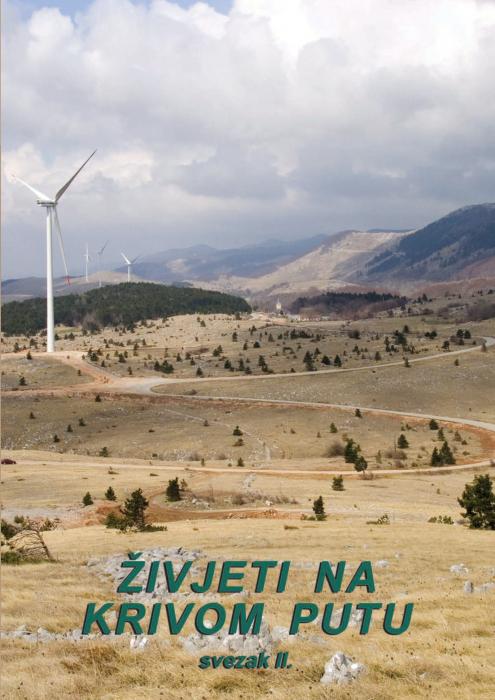Živjeti na Krivom Putu: Sv. 2, Etnološka monografija o primorskim Bunjevcima
Synopsis
Monografija se sastoji od osam cjelina ponajviše iz duhovne i društvene kulture primorskih Bunjevaca na prostoru mikroregije Krivi Put u senjskome zaleđu. Prva cjelina pod nazivom: Obitelj i lokalna zajednica sastoji se od pet priloga (demografski razvoj, obiteljski život odnosi i vrijednosti, podaci iz Stališa duša, život zadružne obitelji, prezimena, osobna imena, obiteljski i osobni nadimci Krivopućana), zatim slijede cjeline: odijevanje, prehrana, medicina, pučka pobožnost, godišnji običaji te vjerovanja. Monografija završava poglavljem kroz koji se daju smjernice o mogućnosti korištenja i prezentacije tradicijske baštine krivoputskoga područja.
Chapters
-
Uvod: Živjeti na Krivom Putu
-
OBITELJ I LOKALNA ZAJEDNICA
-
Demografski razvoj Krivoputske regije: dinamičke i strukturne promjene u uvjetima iseljavanja stanovništva
-
Obiteljski život, odnosi i vrijednosti
-
Podaci iz Stališa duša kao izvor za etnološko istraživanje obiteljskoga života Krivopućana
-
Život zadružne obitelji: dvije studije slučaja
-
Prezimena, osobna imena, obiteljski i osobni nadimci Krivopućana
-
ODIJEVANJE
-
Tradicijsko odijevanje i tekstilno rukotvorstvo
-
PREHRANA
-
Tradicijska prehrana i prehrambena kultura
-
MEDICINA
-
Segmenti narodne medicine
-
Liječenje zmijskog ujeda – priča kao dio sjećanja zajednice
-
PUČKA POBOŽNOST
-
Majka Božja Snježna u pučkoj pobožnosti na području Krivoga Puta
-
Sveci zaštitnici u pobožnosti Krivopućana
-
GODIŠNJI OBIČAJI
-
Godišnji običaji
-
Krivopućani i svi njihovi karnevali
-
VJEROVANJA
-
Vjerovanja u nadnaravna bića
-
MOGUĆNOSTI KORIŠTENJA I PREZENTACIJE TRADICIJSKE BAŠTINE
-
Etnografska zbirka o primorskim Bunjevcima u Gradskome muzeju Senj
-
Mogućnosti korištenja elemenata tradicijske kulture u revitalizaciji Krivoputskog područja
-
To Live on Krivi Put: Ethnological Monograph on the Littoral Bunjevci
-
Das Leben in Krivi Put: Ethnologische Monographie über Küstenland Bunjewatzen
-
O autorima
-
Popis kazivača
Downloads
Download data is not yet available.

Downloads
Published
5. March 2021.
Categories
Copyright (c) 2020 Authors
License
LicenseDetails about the available publication format: PDF
PDF
Publication date (01)
2020
Publication date of print counterpart (19)
2009
Details about the available publication format: Print edition
Print edition
ISBN-13 (15)
978-953-175-343-2
Date of first publication (11)
2009
